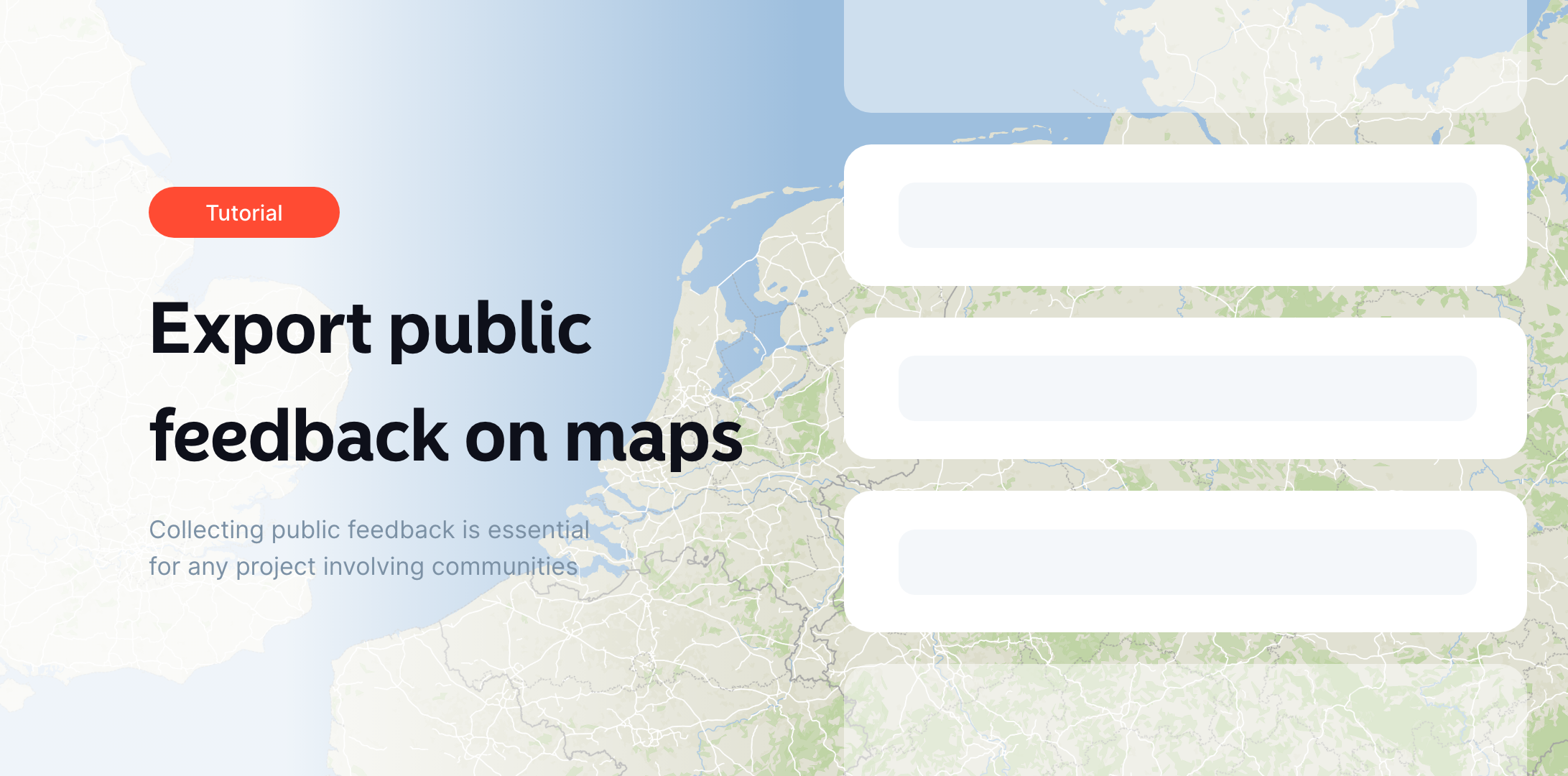Collecting public feedback is essential for any project involving communities, but managing that feedback can be a pain.
Copy-pasting comments from maps, manually sorting through feedback—it’s time-consuming and inefficient. Atlas is here to make things easier.
Introducing our new feature: you can now export comments from your maps directly to CSV or JSON files. This feature simplifies how you gather and organize feedback, making it easier to analyze and use.
Why This Matters for Public Participation
When you invite public feedback on GIS maps, you're opening the door to better collaboration and smarter decisions. But tracking and managing that input shouldn’t be a headache.
Before this feature, users would need to manually pull comments from maps and organize them into spreadsheets or documents. Not only is this time-consuming, but it's also easy to lose or misinterpret data. By allowing you to export all comments at once, Atlas ensures nothing slips through the cracks.
Here’s why:
- Simpler organization: Comments are exported in an organized format, so you can review them at a glance.
- Faster analysis: With CSV files, you can quickly sort and filter through feedback using spreadsheet tools like Excel or Google Sheets.
- Better transparency: Sharing public feedback with your team, stakeholders, or even the public itself becomes easier with a downloadable file.
- Save time: No more manual copy-pasting or lost feedback. This feature saves hours of work.
How to Export Comments in Atlas
We’ve made this feature super simple to use. Here’s how it works:
- Open your map in Atlas: Navigate to the map where you've collected public comments.
- Go to the comments section: You’ll see all the comments that users have left.
- Click "Download": You’ll be given two file options—CSV or JSON. Choose the one that best suits your needs.
- Save your file: The comments will be downloaded instantly, ready for you to review and analyze.
CSV vs. JSON: What’s the Difference?
When exporting comments, you can choose between two file formats: CSV and JSON.
-
CSV (Comma-Separated Values): This format is great for anyone working with spreadsheets. You can open it in Excel or Google Sheets to sort, filter, and analyze data easily.
-
JSON (JavaScript Object Notation): JSON is a structured format often used by developers. If your team uses technical tools or integrates data into other systems, JSON is ideal.
Both options allow you to work with public comments in a way that’s best suited to your workflow.
How This Improves Public Participation
Exporting comments is more than a time-saver. It’s a tool for improving how you engage with the public. Here's how:
- Easier to share: Share feedback with your team or project partners in an organized format.
- Better decision-making: By reviewing all public input quickly and clearly, you can focus on the most important issues and adjust your plans accordingly.




